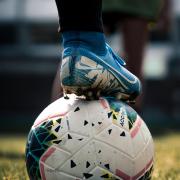
Many people who are devoted to things like a particular sport or have a keen interest in academics experience many highs therefore are able to succeed often but there are always, no matter the depth of your ability, lows. In many sports these are often but not limited to injuries and losses in games and in cases of the academics low scores in exams and forgotten assignments may lead to knocked confidence and mental blocks in participation after the low. I have personally found that currently in school settings and in teenagers this is becoming more common and harder to combat due to the introduction of self-esteem issues due to media influence and bullying between schools.
For many young people things like mental blocks are common due to being in school full time and having time to actively participate or compete in sports. These sorts of mindsets that cause nervousness and hesitation are most prevalent in sports such as figure skating, gymnastics, horse riding and rugby. This is likely due to the high levels of risk and the frequency of injury. As well as this, people who are very devoted to their studies and put a lot of time into studying or put a lot of hard work into work which can lead to being very disappointed in themselves or their skills after getting a score that doesn't reflect their abilities.
These sorts of knocks very much lead to a fear in students and athletes alike about their abilities and skills. Overcoming these sorts of issues in terms of self esteem and a type of destructive mindset can be extremely difficult and often have to be a challenge you overcome by yourself due to the difficulty not being a physical one that your trainer or teacher can give you pointers on but instead being a lack of confidence in yourself or your knowledge.
I personally know many people who take part in sport that describe the feeling as something that means that whilst you know in reality you are perfectly competent and can succeed you still doubt yourself and the almost imposter syndrome type feeling kicks in. This overwhelming type of mental block is very prevalent in cases such as equestrian sports and rugby as you rely on something or somebody else with their own brain and body to not hurt you or themselves. When equestrians ride it often is a sort of understanding and friendship between rider and horse that leads to them not being thrown off. When riders are actively moving they have to concentrate on their horse, their movements and also having enough confidence to not spook themselves or their 4-legged partner.
This type of confidence is often difficult and even impossible to muster after a bad injury or loss in a competition and so the relationship between horse and rider is not there. When this happens it can take weeks or even months for equestrians to build back confidence leading to a lull in progress that can further the mental block of the rider. This is similar in the case of rugby - if a player has been injured in a match once recovered it may be that they struggle to give the game their all in worry that they may be injured again and just like in the case of horse riding it can lead to a lull in progress.
That being said, there are many tried and tested methods to overcome this feeling that I have found from personal experience, speaking to others and research that I thought I would share. Many find that focusing on mental strategies to implement a relaxed view towards the severity and importance of the task as well as creating a self-cheerleader attitude and allowing time to build yourself up and not allow negativity to take over. People also find that building trust between themselves and the game. It's also important for people who are struggling with blocks in the environment of academics to trust that people are not out to get them and exams are written to trip them up. This type of trust is always difficult to build no matter whether it is between a person and a piece of paper or a person and a game and the main problem is that those who are struggling are often unable to get support in tackling the imposter syndrome that comes along with these feelings.
Roughly 35% of athletes suffer with these sorts of feelings and overcoming them can be a challenge that is left unspoken for far too long. The message that everybody whom I have spoken to wanted to pass over was that, if you feel like you are struggling to overcome the fear of failure, injury or that you aren't good enough, always speak to somebody and reach out for a kind ear.



























